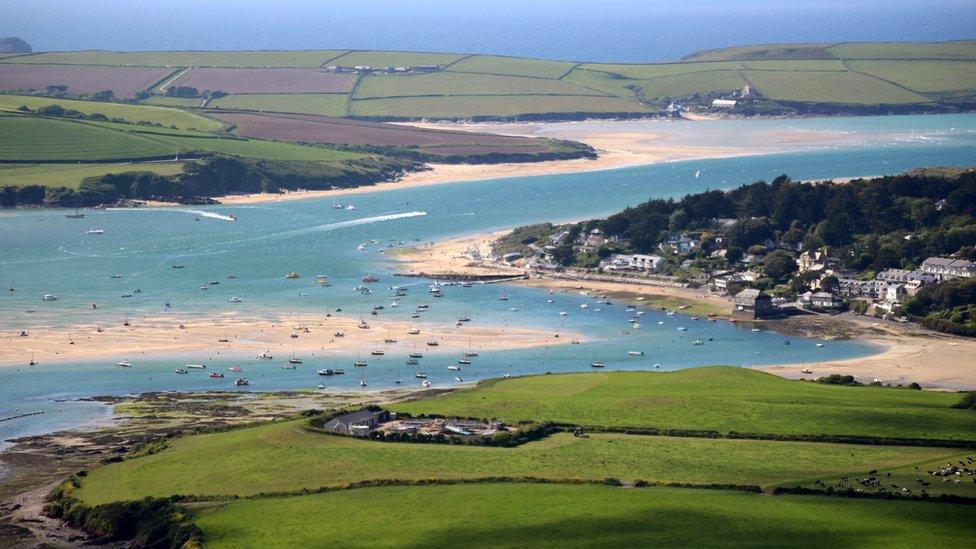RNLI seeing an increase in paddleboard rescues
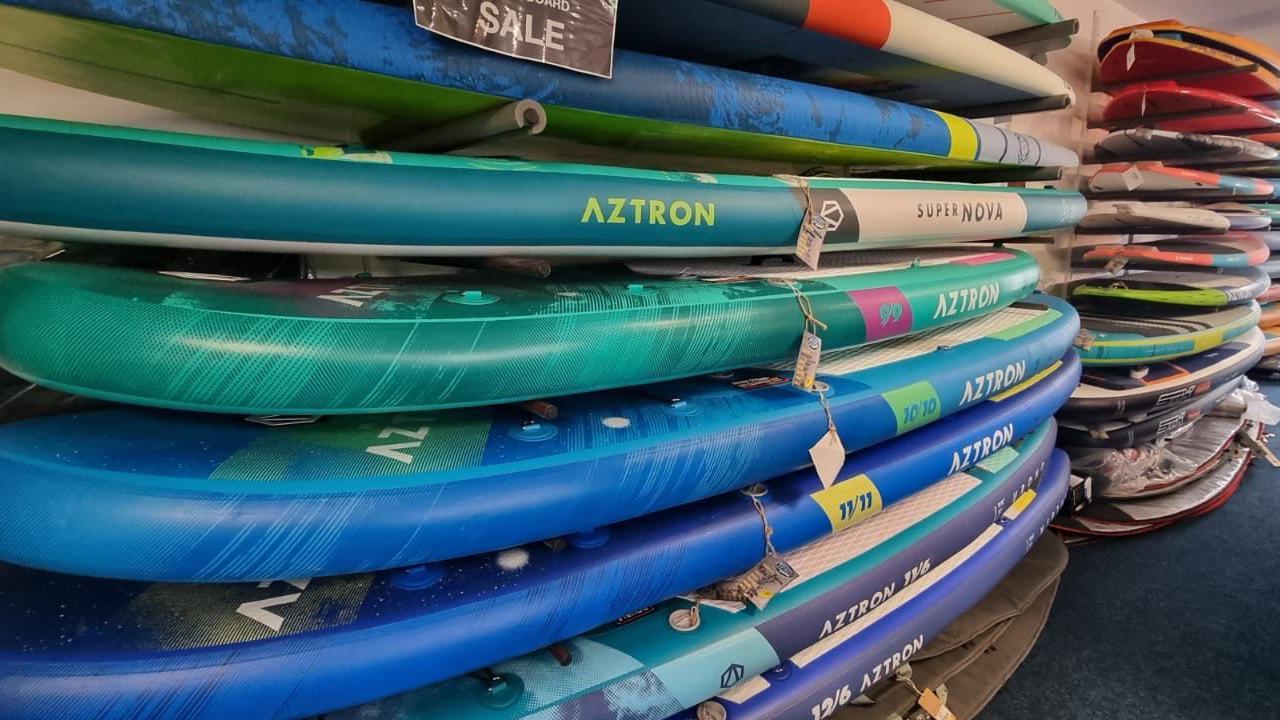
The RNLI said paddleboarders should not leave their boards in an emergency
- Published
Emergency services are seeing an increase in paddleboard rescues across the South West, the RNLI has said.
Paddleboarding has become a popular water sport in recent years, but the organisation said it could pose risks.
The RNLI said it was seeing up to 40 paddleboard rescues across a year, with lifeguards dealing with them on a "day to day basis".
"We are seeing increased call-outs both to the lifeboat service but also our lifeguard colleagues," said Joel Ninnes from the RNLI.
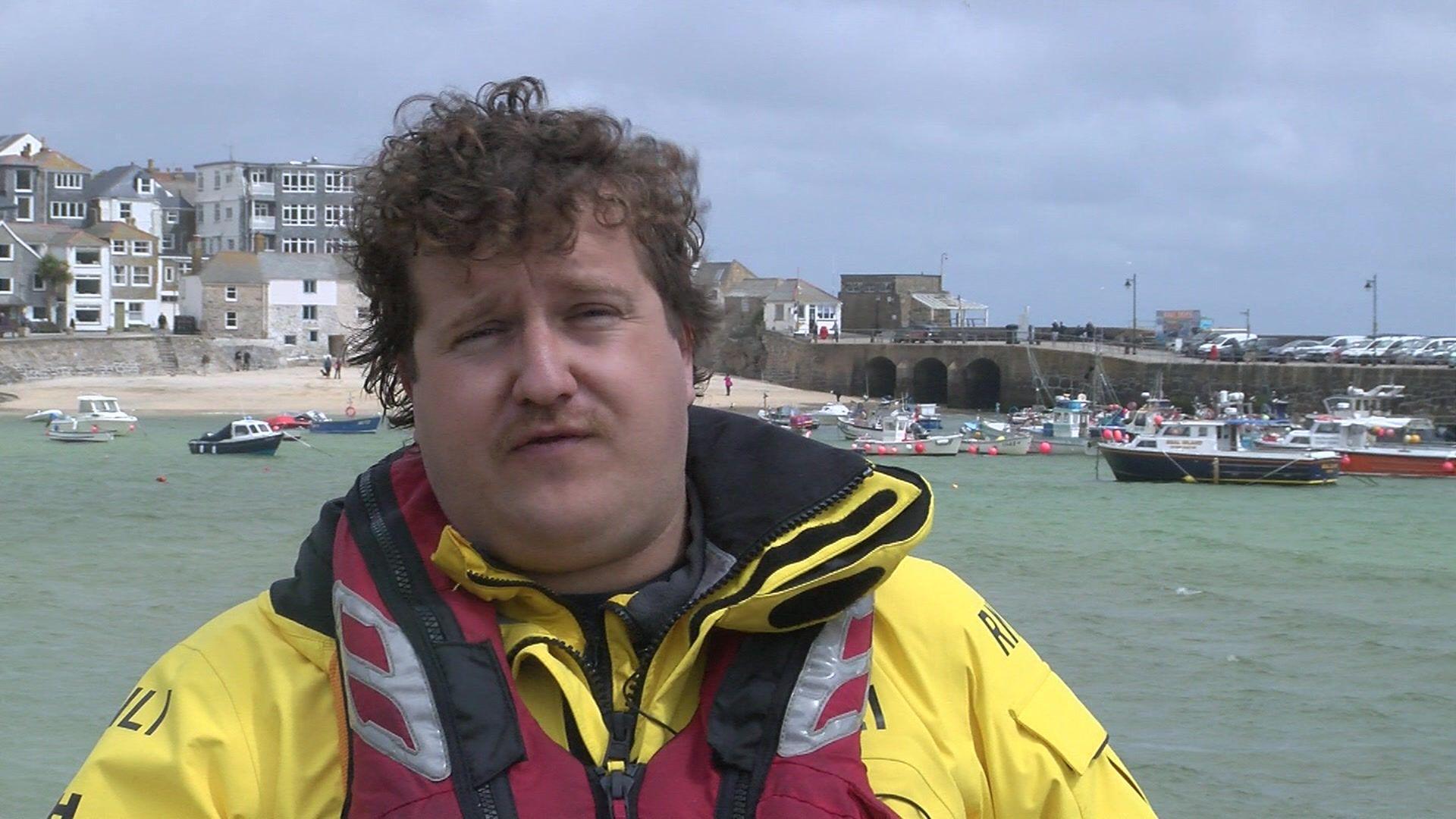
Joel Ninnes said paddleboards were not as common five years ago
"About five years ago we probably only had four or five shouts across the whole South West for paddleboards," Mr Ninnes said.
"Now they are easily available, you can rent them or buy them cheap."
He said people often leave their paddleboards and try to swim in an emergency, but he advised people to stay with their board because it keeps them "visible and above the water".
He said doing so made "it easier for us to rescue" people.
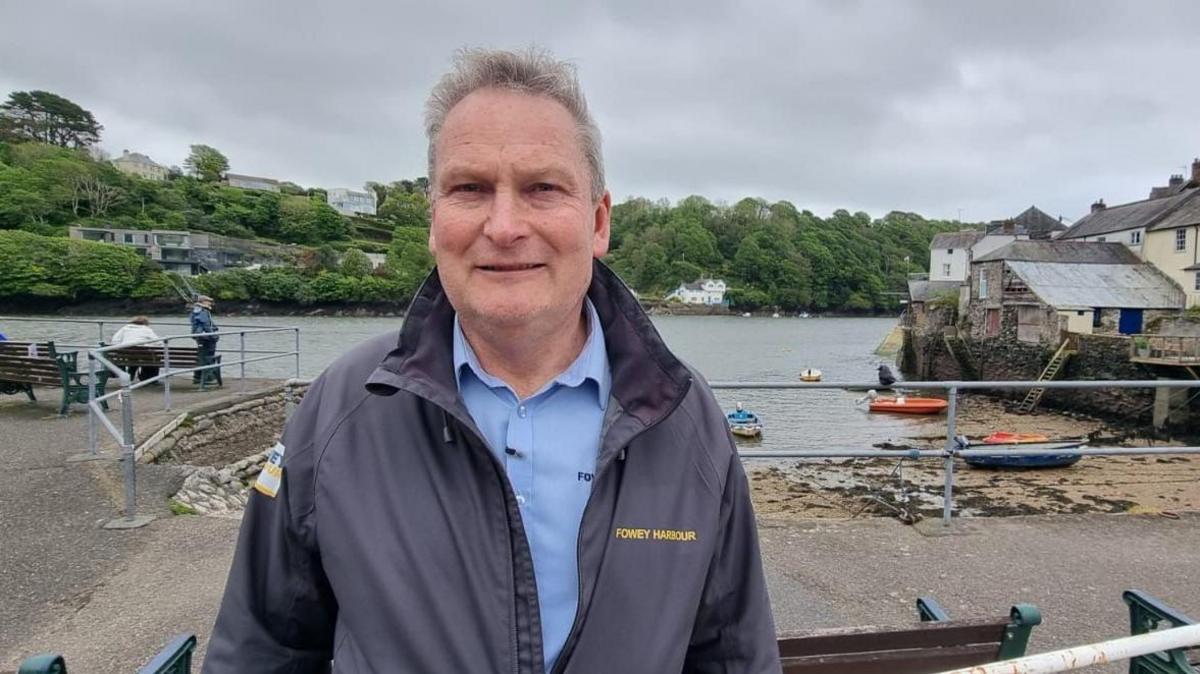
Fowey harbour master Paul Thomas has set up a new scheme to help reduce false call-outs for emergency services
Mr Ninnes advised people to ensure they had the "right buoyance aid for what you are doing".
"Also have the leash attached and a quick release waist leash if you are in fast-flowing moving water such as rivers and estuaries," he said.
Brendon Prince, who paddleboarded around the coastline of Britain in 2021, encouraged people to seek lessons before jumping in.
"If you have never had a lesson, or you haven't experienced it, you don't know what dangers there are or how you can get into trouble," he said.
"If you get into trouble [and] you haven't got the right kit, buoyance, the right board for your ability, your paddle and appropriate clothing, then you will get into trouble and need the emergency services to rescue you."
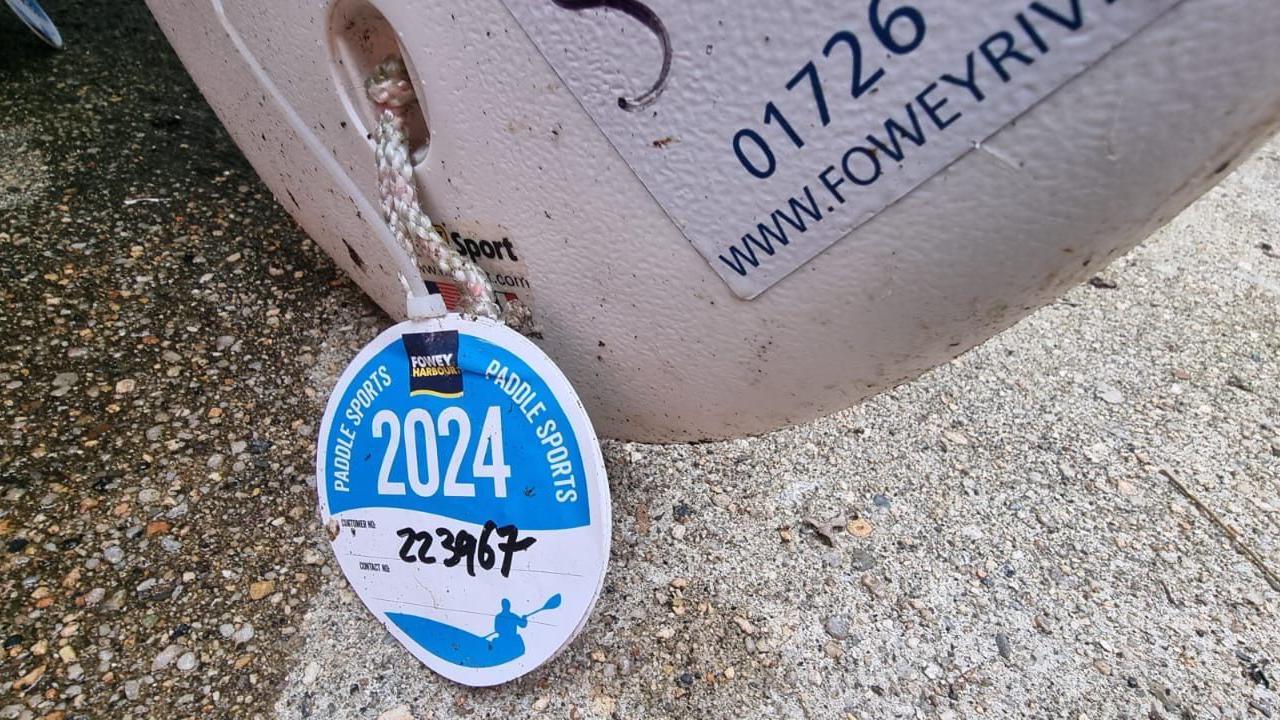
Paul Thomas said they could check the code before launching lifeboats and helicopters to search
Fowey harbour master Paul Thomas has set up a scheme for people to register their boards in case they get swept up on the beach.
"There is a reference number which we can look up and we get all the contact details of the person," he said.
"We can check on them first before we are launching lifeboats and helicopters to search.
"Hopefully they answer and everything is fine and we can stand down and reunite them with their kit."
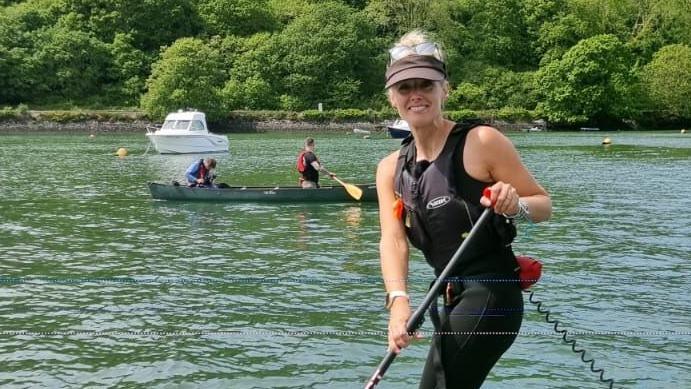
Clair Connibeer, an instructor for Encounter Cornwall, enjoys being able to explore different places on a paddleboard
Clair Connibeer, a paddleboard instructor in Fowey, said the activity could have a positive effect on physical and mental wellbeing.
"It's just so good for body and soul," she said.
"It's a great way to explore different places which we could not necessarily get to via the land.
"Children are amazing, they leap up on the boards. It would be really good to get more juniors involved.
"I think that is a really good area for us to focus on moving forwards."
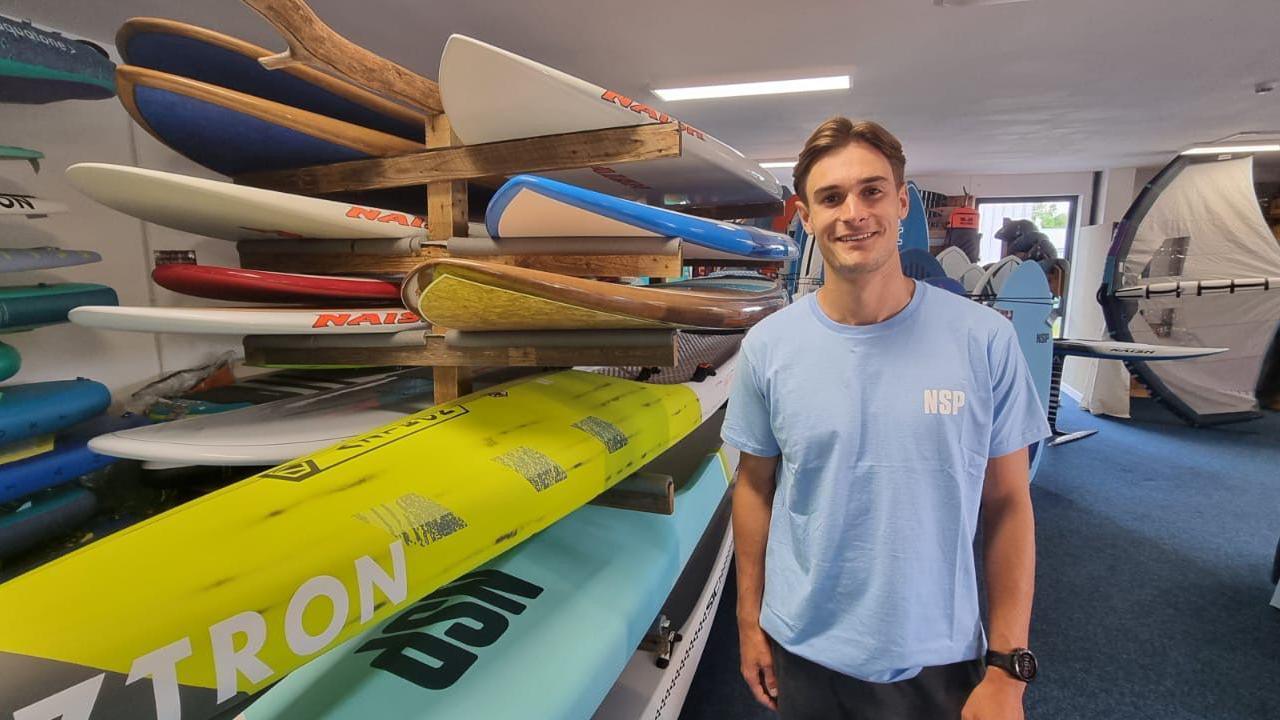
Blue Ewer, a British paddleboard champion, wants paddleboarding to be an Olympic sport
Blue Ewer, a six-time stand-up paddleboard race champion and one of the top 10 in Europe, said he hoped the sport could make it to the Olympics.
"It is something I would love to happen," he said.
"I keep my fingers crossed and hope the sport keeps growing."
Follow BBC Cornwall on X (formerly Twitter), external, Facebook, external and Instagram, external. Follow BBC Devon on X (formerly Twitter), external, Facebook, external and Instagram, external. Send your story ideas to spotlight@bbc.co.uk, external.
Related topics
- Published4 May 2024
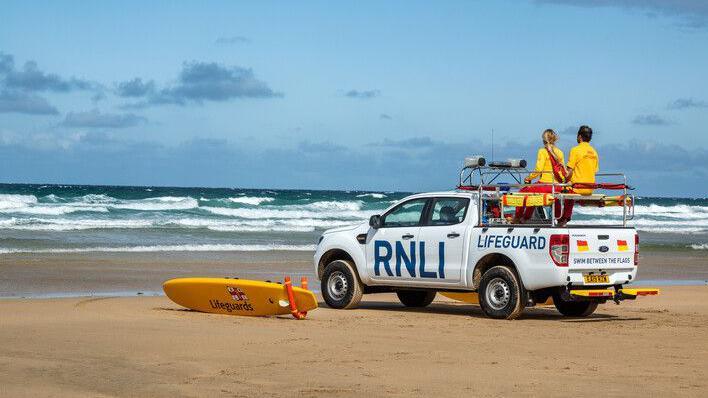
- Published13 May 2024
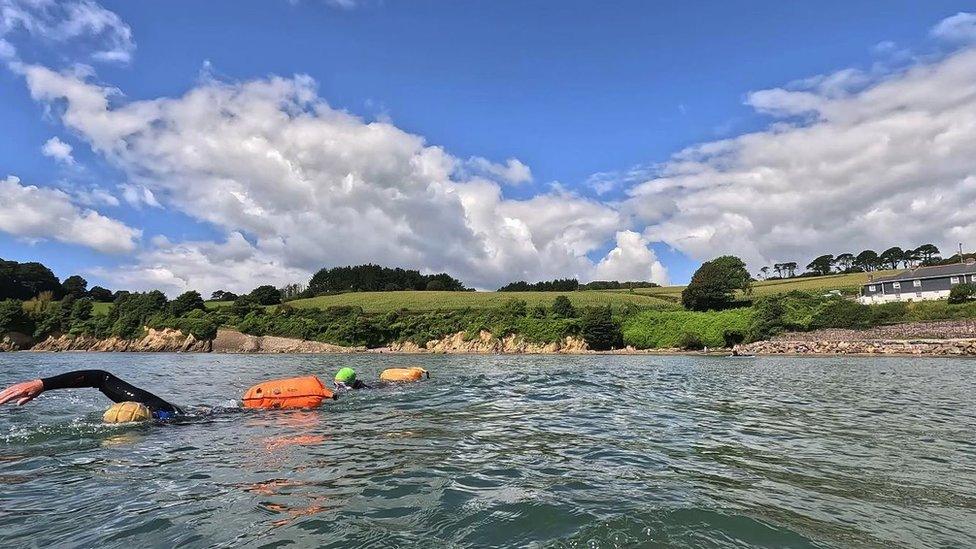
- Published1 September 2020
